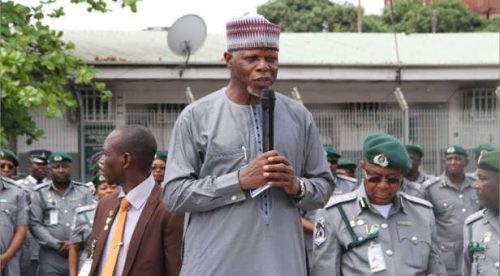No fewer than 30 officials of the Nigeria Customs Service (NCS) and stakeholders have benefited from a five-day training workshop held by the World Customs Organisation (WCO) on Time Release Study (TRS).
The workshop was held at the request of the NCS through the West African Customs Administrations Modernization (WACAM) Project funded by the Swedish Government in carrying out its very first Time Release Study (TRS) following the WCO methodology as outlined in the TRS Guide.
The workshop, which was held in Lagos, provided TRS training to some 30 Customs officers and representatives of various stakeholders involved in goods clearance process and enabled them to map out an initial draft of the procedures for releasing and clearing goods arriving at or departing from Apapa Port – one of the most important entrance point in Nigeria.
This major workshop included a presentation of TRS methodology, following the WCO’s Guide, and also gave participants the opportunity to work with the WCO’s TRS software.
In his opening speech at the workshop, the Comptroller-General of Custom, Hameed Ali, stressed the importance of the training, which will enable his administration, and all stakeholders involved, to identify procedural bottlenecks affecting all those involved in the release and clearance of goods and, above all, to work together on solutions to facilitate trade and improve the business climate.
The Time Release Study, according to Ali, should be considered as a collaborative approach to scientifically measure how long it takes to effect the release of goods out of Customs and port control.
The Customs boss said the workshop should not be used for passing blame or finger pointing among stakeholders.
Carrying out its very first TRS, based on the WCO methodology, will enable Nigeria to comply with the requirements of Article 7.6 of the WTO Trade Facilitation Agreement (TFA).
The TFA encourages WTO member states to measure and publish their average release time of goods periodically and in a consistent manner.

